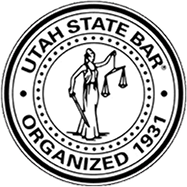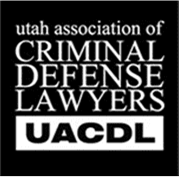Being charged with a crime in Utah can be a life-altering experience. Whether it’s a minor incident or a serious allegation, the criminal justice process is complex—and the stakes are high. One of the first and most critical distinctions you’ll encounter in any criminal case is whether the charge is a misdemeanor or a felony.
Understanding how Utah law defines and handles these charges is essential for anyone accused of a crime or trying to support a loved one through a legal battle. This blog breaks down the key differences between felonies and misdemeanors in Utah, what each entails, and why the classification matters so much to your rights, freedom, and future.
What Are Criminal Charges?
In the U.S., criminal offenses are generally divided into infractions, misdemeanors, and felonies. Utah follows this same classification structure.
- Infractions are the least serious (e.g., traffic tickets) and usually carry fines only.
- Misdemeanors are more serious and can lead to jail time and significant fines.
- Felonies are the most serious and may result in state prison time, large fines, and lifelong consequences.
Let’s focus on the two main criminal categories: misdemeanors and felonies.
Misdemeanor Charges in Utah
Misdemeanors in Utah are criminal offenses punishable by up to one year in jail, with possible fines. These charges often involve conduct that is harmful but not severely violent or destructive.
Classes of Misdemeanors
Utah law (see Utah Code § 76-3-204) divides misdemeanors into three categories:
- Class A Misdemeanor
- Up to 364 days in jail
- Fines up to $2,500
- Examples: DUI (first offense), assault with bodily injury, criminal mischief
- Class B Misdemeanor
- Up to 6 months in jail
- Fines up to $1,000
- Examples: domestic violence without injury, theft under $500, drug possession (minor amounts)
- Class C Misdemeanor
- Up to 90 days in jail
- Fines up to $750
- Examples: public intoxication, disorderly conduct, driving without insurance
Legal Process for Misdemeanors
- Arraignment: First court appearance where charges are read and a plea is entered.
- Pre-trial Conference: Opportunity for plea bargaining.
- Trial: Typically bench trials unless a jury is requested.
- Sentencing: If convicted, the court imposes jail, fines, probation, or other penalties.
Felony Charges in Utah
Felonies carry much more serious consequences, including state prison sentences and substantial fines. Felonies also come with long-term consequences such as loss of voting rights, firearm ownership, and barriers to employment and housing.
Degrees of Felonies
According to Utah Code § 76-3-203, felonies are divided into:
- Capital Felony
- Life imprisonment or death penalty (e.g., aggravated murder)
- First-Degree Felony
- 5 years to life in prison
- Up to $10,000 fine
- Examples: rape, aggravated burglary, kidnapping
- Second-Degree Felony
- 1 to 15 years in prison
- Up to $10,000 fine
- Examples: robbery, manslaughter, distribution of controlled substances
- Third-Degree Felony
- 0 to 5 years in prison
- Up to $5,000 fine
- Examples: aggravated assault, felony DUI, theft over $5,000
Felony Case Process
- Initial Appearance
- Preliminary Hearing: The judge determines if there’s enough evidence to proceed.
- Arraignment: Charges are formally filed.
- Trial: Jury trials are standard for felonies unless waived.
- Sentencing: Convictions can result in prison, probation, and fines.
Felony charges often require months of legal proceedings, and the defense strategy may involve suppression motions, evidentiary hearings, and negotiations with prosecutors.
Key Differences Between Felonies and Misdemeanors
Understanding how felonies and misdemeanors differ can help you assess the seriousness of your charges and prepare for what comes next.
| Category | Misdemeanor | Felony |
| Maximum Jail/Prison Time | 364 days | 5 years to life (depending on degree) |
| Where You Serve Time | County Jail | State Prison |
| Fines | Up to $2,500 | Up to $10,000 |
| Trial Type | Often bench trial | Usually jury trial |
| Long-Term Consequences | Criminal record, fines, probation | Criminal record, civil rights restrictions, job and housing barriers |
Even a single conviction can follow you for years, which is why it’s crucial to handle criminal charges strategically from the beginning.
Can Charges Be Reduced or Dismissed?
In Utah, prosecutors and defense attorneys often negotiate plea deals, especially for misdemeanor offenses. Some felony charges may also be reduced to misdemeanors if the defendant agrees to certain terms, such as:
- Attending treatment programs
- Paying restitution
- Community service
In some cases, Utah offers diversion programs for first-time offenders, especially in drug-related or non-violent misdemeanors.
Long-Term Consequences of a Criminal Conviction
Misdemeanor Conviction
- May remain on criminal record unless expunged
- Can affect housing, job applications, and professional licensing
- Possible probation and financial penalties
Felony Conviction
- Loss of civil rights (voting, firearms)
- Barriers to employment and housing
- Ineligibility for many government benefits
- Immigration consequences for non-citizens
- May not qualify for expungement depending on the charge
Utah’s expungement laws (see Utah Code § 77-40a) allow for clearing records after a waiting period, but felony cases have longer wait times and more restrictions.
Legal Help Makes the Difference
If you’re facing criminal charges—whether a misdemeanor or felony—you should understand that Utah’s legal system is complex. The penalties are steep, but your rights, your future, and your freedom can often be protected with skilled legal representation.
Attorney Edward D. Flint is a seasoned criminal defense lawyer who has handled thousands of felony and misdemeanor cases across Utah. With over 35 years of legal experience, Mr. Flint provides honest, assertive, and highly strategic representation, especially for those facing the overwhelming pressure of criminal charges.
He focuses on:
If you’re facing criminal charges, you deserve a legal ally who knows the local courts, understands Utah’s laws inside and out, and will stand up for your rights at every step.
Final Thoughts
If you or a loved one is facing a felony or misdemeanor charge in Utah, don’t wait to seek help. The right legal strategy can make all the difference in your outcome—whether it’s avoiding jail, protecting your record, or fighting for a full acquittal.
Call Edward D. Flint Attorney at Law today at (385) 707-0702 to schedule a confidential consultation. Our office is committed to helping you understand your charges, protect your future, and move forward with clarity and strength.
Disclaimer: This article is intended for informational purposes only and should not be taken as legal advice. Consult with a qualified attorney to discuss your specific situation.




